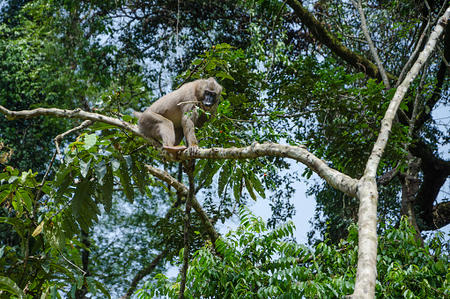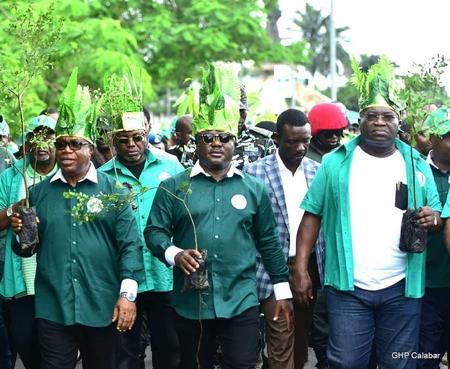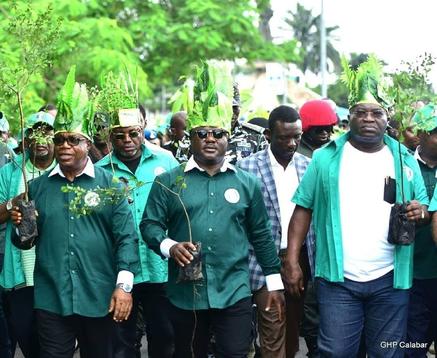Women often face the worst and most acute impacts of climate change (BBC, 2018).
This is being experienced first-hand by the women of the Bumaji clan in the Boki Local Government Area (LGA), and other forest communities in Cross River State, Nigeria.
As the group mainly responsible for food gathering and preparation, they bear the brunt of forest mismanagement and land-use degradation. The Boki LGA, which includes the Afi mountain range, is second to the Akamkpa LGA in terms of having the highest rainforest coverage.
The Bumaji local economy is largely based on agriculture, with most people working as farmers and forest gatherers. But in recent years unsustainable levels of logging for timber, fuelwood and agriculture have skyrocketed with profound economic and environmental consequences on livelihood.
The Government of Cross River State has delivered a revitalised strategy to tackle this problem – one that incorporates diverse stakeholder perspectives and factors in the central role of women.

The key ingredient: participation
To ensure all voices were involved in policymaking, the government used a participatory planning approach. This is ‘bottom up’, meaning that end users – the people and communities living in Boki – were involved throughout the entire process and were able to input their ideas. This ensured buy in and consent before policy development began.

Putting into practice
The government set up training sessions focused on the social and economic benefits of climate change mitigation and adaptation. Local communities were taught how they could increase their farms’ productivity and food security in sustainable ways.
Cross River State's Forestry Commission delivered livelihood training with selected forest communities. It focused on community forest management best practice, with specific attention given to the role of women.
The Governor's office also hosted the Green Carnival. This annual event is designed to celebrate and protect Cross River State's forest cover, offering a relaxed and engaging way to raise awareness on the effects of climate change, the need to maintain forest cover and to promote urban forestry.
Other training sessions were delivered in agroforestry to:
- Empower people to produce cocoa and tropical trees such as bush mango (Irvingia gabonensis), pears, citrus fruits and palms for economic development;
- Regenerate deforested areas;
- Reduce deforestation and safeguard ecosystems through sustainable farming e.g homestead gardening;
- Teach local populations how to construct efficient firewood stoves to reduce carbon emissions;
- Explain how to raise seed capital for the rearing of goats as an alternative source of protein to minimise the impact of hunting wildlife.
A particular focus was put on the role and responsibility of women in the region. By raising women’s awareness of climate change causes and effects, women have been given the opportunity to lead and take climate action at the local level.

In total, 385 women have directly benefited from this initiative.
This figure includes:
- 254 women benefitting from the workshop on climate change causes and effects and mitigation;
- 15 women benefitting from capacity building in agroforestry;
- 36 women benefitting from training in sustainable hunting and agriculture;
- 80 women receiving training on the construction of efficient fuelwood stoves.
Learning among colleagues in the Just Transition Taskforce has greatly helped us in advancing an equitable, acceptable, and much needed overall change in our transition to a carbon free economy.
Learning among colleagues in the Just Transition Taskforce has greatly helped us in advancing an equitable, acceptable, and much needed overall change in our transition to a carbon free economy.
Now the government is looking to expand this impact.
Needs assessments in additional communities will be delivered in the longer term to scale up this successful activity. The government is now looking to identify the main climate change challenges being faced locally, their scale and the number of people affected.
The government will also engage in participatory planning activities with target communities and regions on what actions should be taken forward, the associated costs, community in-kind contributions, regional contributions, roles and responsibilities and gender issues.
